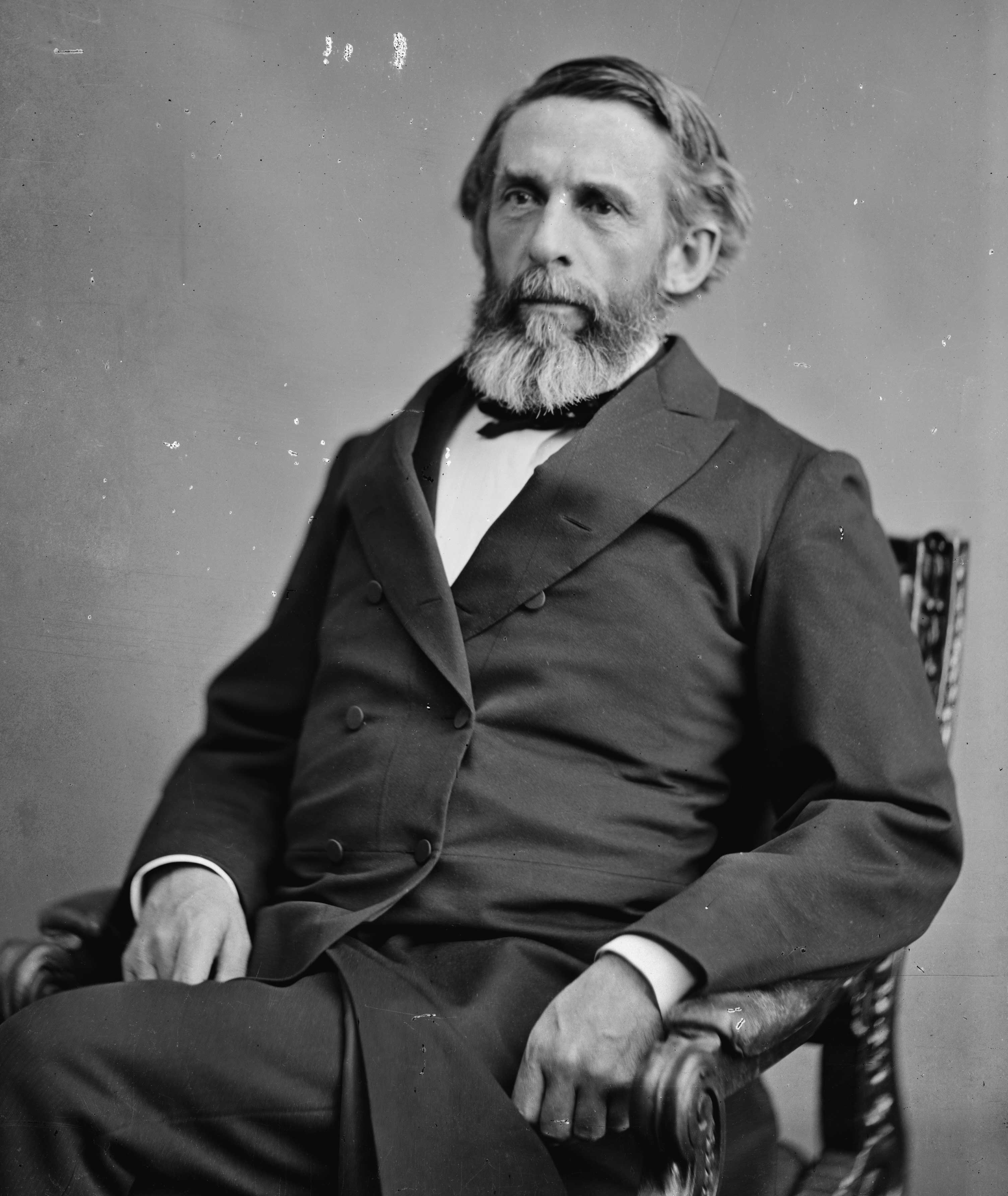- George S. Boutwell
Infobox Governor
name = George Sewall Boutwell
order = 20th
office = Governor of Massachusetts
term_start =January 11 ,1851
term_end =January 14 ,1853
lieutenant =Henry W. Cushman
predecessor =George N. Briggs
successor =John H. Clifford
birth_date = birth date|1818|1|28|mf=y
birth_place =Brookline, Massachusetts
death_date = death date and age|1905|2|27|1818|1|28|mf=y
death_place =Groton, Massachusetts
party = Democrat
Republican
spouse = Harriet Briggs
profession =Politician ,Lawyer ,Teacher
religion =
order2 = Member of theU.S. House of Representatives fromMassachusetts 's 7th and 9thdistrict
term_start2 =March 4 ,1863
term_end2 =March 12 ,1869
predecessor2 =Daniel W. Gooch
successor2 =George M. Brooks
order3 = 28thUnited States Secretary of the Treasury
term_start3 =March 12 ,1869
term_end3 =March 16 ,1873
predecessor3 =Hugh McCulloch
successor3 = William A. Richardson
president3 =Ulysses S. Grant
jr/sr4 = United States Senator
state4 =Massachusetts
term_start4 =March 17 ,1873
term_end4 =March 3 ,1877
predecessor4 =Henry Wilson
successor4 =George F. Hoar George Sewall Boutwell (
January 28 ,1818 –February 27 ,1905 ) was an American statesman who served asSecretary of the Treasury under PresidentUlysses S. Grant ,Governor of Massachusetts , a Senator and Representative fromMassachusetts and the firstCommissioner of Internal Revenue under PresidentAbraham Lincoln .Born in
Brookline, Massachusetts , Boutwell was raised on his family's farm and attended the public schools as a child. He worked as a schoolteacher inShirley, Massachusetts and as a clerk and shopkeeper inGroton, Massachusetts . Entering politics as a Democrat and supporter ofMartin Van Buren , he was appointedpostmaster of Groton in 1841 and served in theMassachusetts House of Representatives from 1842 to 1844 and from 1847 to 1850. He made three unsuccessful runs for theUnited States House of Representatives in 1844, 1846 and 1848 and two unsuccessful runs for the governorship in 1849 and 1850. He served as state bank commissioner from 1849 to 1851, was a member of the Harvard University Board of Overseers from 1850 to 1860 and was elected twiceGovernor of Massachusetts in 1851 and 1852, serving from 1851 to 1853. He was a member of theMassachusetts Constitutional Convention of 1853 , helped in founding the Republican Party in 1854 and was secretary of theMassachusetts Board of Education from 1855 to 1861.Boutwell attended the
Peace Conference of 1861 inWashington, D.C. which attempted to devise means to prevent the impendingAmerican Civil War . He switched party affiliations to the Republican Party and served on the military commission in the Department of War in 1862 before being appointed the firstCommissioner of Internal Revenue by PresidentAbraham Lincoln the same year. He served as commissioner until his election to theUnited States House of Representatives where he served from 1863 to 1869. In 1868, as a congressman, he served as one of the specialprosecutor s in the impeachment trials of President Andrew Johnson.Boutwell resigned from the House in 1869 to accept the appointment of Secretary of the Treasury from President
Ulysses S. Grant in 1869. As Treasury Secretary, his primary achievements were reorganizing the Treasury Department, improving bookkeeping by customs houses, incorporating theUnited States Mint into the Treasury and reducing thenational debt . He also managed the Black Friday crisis ofSeptember 23 ,1869 , warding off goldspeculators by flooding the market with Treasury gold.In 1873, when Massachusetts Senator
Henry Wilson was elected to the vice presidency, Boutwell was elected to Wilson's Senate seat and resigned as Treasury Secretary. In the Senate, he served as chairman of the Committee on the Revision of the Laws in the 44th Congress. After leaving the Senate, PresidentRutherford B. Hayes appointed him commissioner to codify and edit the "Revised Statutes of the United States " in 1877 and was the United States counsel before the French and American Claims Commission in 1880.Boutwell practiced international and patent law in Boston and
Washington, D.C. and turned down the appointment of Secretary of the Treasury from PresidentChester A. Arthur in 1884.He opposed the acquisition by the United States of the
Philippines , became president of theAmerican Anti-Imperialist League , and was a presidential elector on theWilliam Jennings Bryan ticket in 1900.He published several books on education, taxation and
political economy . His book "The Constitution of the United States at the End of the First Century" was considered particularly significant.Boutwell died in
Groton, Massachusetts , and is buried at Groton Cemetery. His house in the center of Groton, built in 1851 while he was governor, was given to the Groton Historical Society by his daughter, Georgianna. It now serves as the society's headquarters and is opened in the summer as a museum.References
*1911
*bioguide
*Barnes, William H. [http://name.umdl.umich.edu/ABZ4229.0001.001 History of the Thirty-Ninth Congress of the United States.] New York: Harper, 1868. Page 581
*Brown, Thomas H. "George Sewall Boutwell, Human Rights Advocate". Groton, Massachusetts: Groton Historical Society, 1989.
*Domer, Thomas "The Role of George S. Boutwell in the Impeachment and Trial of Andrew Johnson." New England Quarterly 49 (December 1976): 596-617.
* [http://www.antiimperialist.com/webroot/PEOPLEdocuments/Membership/Peoplepages/GeorgeBoutwell.html Anti-Imperialism and Liberty by Michael Cullinane ] at www.antiimperialist.com Biography and Documents pertaining to George Boutwell] , at Liberty and Anti-Imperialism.
* [http://www.mass.gov/statehouse/massgovs/gboutwell.htm Official Commonwealth of Massachusetts Governor Biography]
Wikimedia Foundation. 2010.
